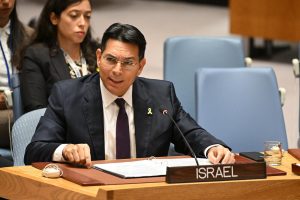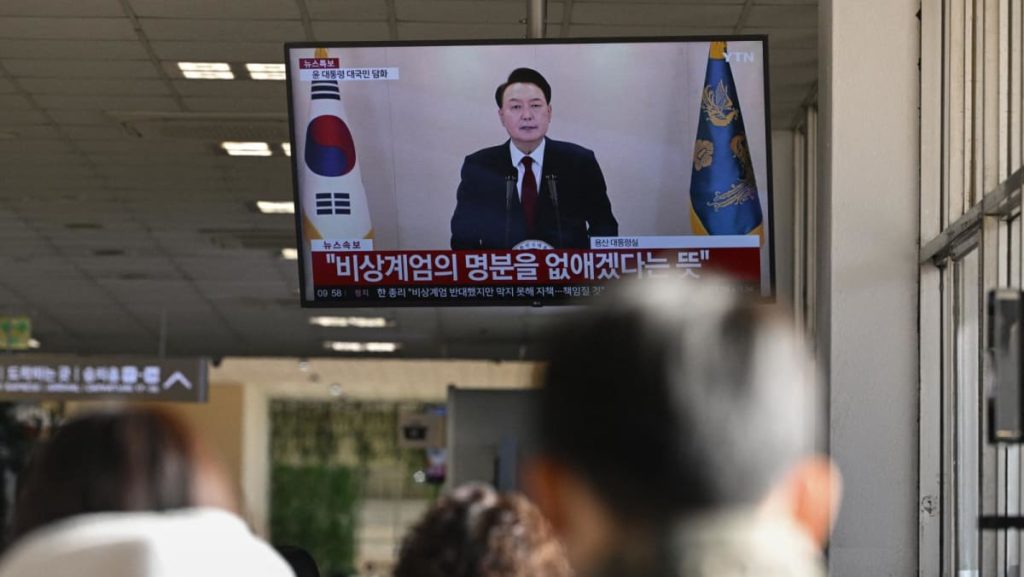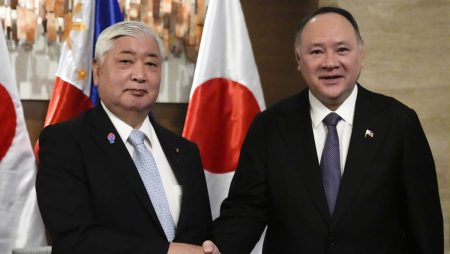South Korean President Yoon Suk Yeol finds himself embroiled in a deepening political crisis, facing mounting pressure from opposition parties and even members of his own ruling party. The controversy stems from a series of events culminating in a short-lived martial law declaration, which Yoon defended as a necessary measure to safeguard democracy but which his critics vehemently denounced as an overreach of power. This escalating tension has culminated in impeachment proceedings against the president, a dramatic development that threatens to further destabilize the country’s political landscape.
Yoon’s televised address on Thursday, December 12th, painted a stark picture of the political divide, with the president accusing the opposition of acting as “anti-state forces” and pushing the nation into a “national crisis.” He characterized the opposition-dominated National Assembly as a “monster” undermining the constitutional order of liberal democracy, and vowed to fight against impeachment efforts until the very end. His apology for the anxiety caused by the martial law declaration was coupled with a defiant assertion of his “warm loyalty to the people” and a commitment to accept legal and political responsibility for his actions.
The president’s defense of the martial law declaration, however, has done little to quell the growing dissent. Yoon justified the measure as a legal tool to protect the country’s democratic foundations, but the swift backlash suggests a deep-seated distrust of his leadership and motives. Adding fuel to the fire is the ongoing investigation into potential North Korean interference in South Korean elections, a claim made by Yoon that has further heightened tensions and added another layer of complexity to the political turmoil.
Adding to the president’s woes, Han Dong-hoon, the leader of Yoon’s own ruling party, has called for the president’s immediate suspension and impeachment. Han’s statement underscores the severity of the crisis and signals a fracturing within the ruling party itself. The move to impeach Yoon further isolates the president and adds significant momentum to the opposition’s efforts to remove him from office. This internal dissent within the ruling party creates a formidable challenge for Yoon, who now faces opposition not only from across the aisle but also from within his own ranks.
The investigation into the events leading up to the martial law declaration is rapidly unfolding, with police attempting to raid Yoon’s office, a move that underscores the gravity of the situation. The president’s foreign travel ban, imposed as part of an “insurrection” probe into his inner circle, adds further restrictions to his ability to maneuver politically. These investigations, coupled with the impeachment proceedings, represent a complex and multifaceted challenge to Yoon’s presidency, creating a climate of uncertainty and potentially impacting South Korea’s political stability.
The confluence of the martial law declaration, the impeachment proceedings, the investigation into potential North Korean election interference, and the internal dissent within the ruling party presents a significant challenge to President Yoon. The coming days and weeks will be crucial in determining the course of this political crisis and its potential impact on South Korea’s domestic and international standing. The president’s ability to navigate these turbulent waters will determine not only his political future but also the stability of the nation. The outcome of the impeachment vote, the ongoing investigations, and the evolving political dynamics within the ruling party will all play a critical role in shaping the future of South Korean politics.










